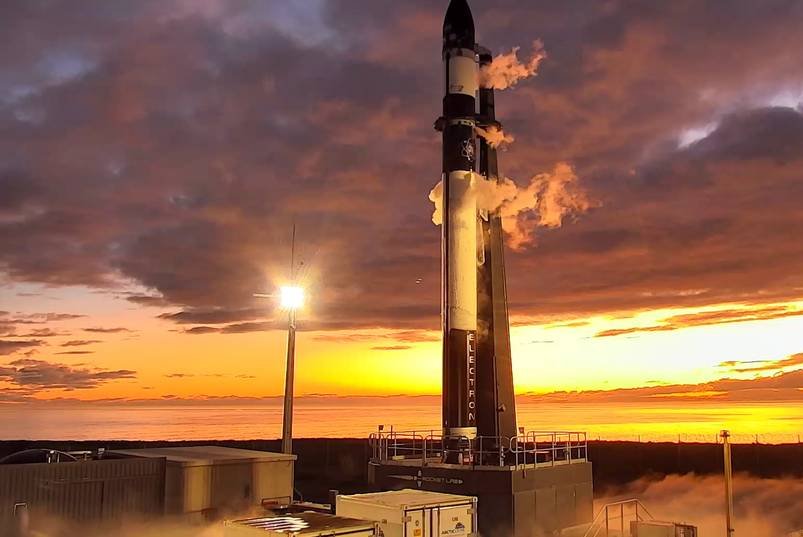
NASA on Saturday successfully launched a satellite it hopes will be able to measure how much heat is lost to space from the Arctic and Antarctica. File Photo courtesy of Rocket Lab
The small cube satellite, or CubeSat, lifted off at 3:41 a.m. in New Zealand aboard an Electron rocket manufactured by Rocket Lab.
The launch took place at the California-based rocket maker’s Launch Complex 1 in Māhia, New Zealand.
NASA did not report any technical problems Saturday, after the original launch date of Wednesday had to be scrubbed because of weather-related issues.
The launch marks the 48th successful takeoff for Rocket Lab’s 59-foot Electron rocket, which is designed to carry small satellites into orbit.
NASA confirmed the satellite deployed into orbit 53 minutes after launch as planned. Technicians later successfully established communication with the satellite at 8:48 a.m. EDT.
Once operational, the CubeSat will provide the space agency with data to help better predict how Earth’s ice, seas, and weather will change amid climate change.
The shoebox-sized satellite is the first of two as part of NASA’s Polar Radiant Energy in the Far-InfraRed Experiment, or PREFIRE.
“NASA’s innovative PREFIRE mission will fill a gap in our understanding of the Earth system – providing our scientists a detailed picture of how Earth’s polar regions influence how much energy our planet absorbs and releases,” NASA’s Earth Science Division in Washington director Karen St. Germain said in a statement.
“This will improve prediction of sea ice loss, ice sheet melt, and sea level rise, creating a better understanding of how our planet’s system will change in the coming years – crucial information to farmers tracking changes in weather and water, fishing fleets working in changing seas, and coastal communities building resilience.”
Rocket Lab has not revealed the date for the second satellite launch, which is expected to take place within three weeks of Saturday’s lift off.
Once both CubSats are fully functional, they will head to different circular orbits some 326 miles above earth. From there, they will be able to pass over a specific spot in the North or South Pole, looking at the same area within hours of each other, something that has never been done before.










